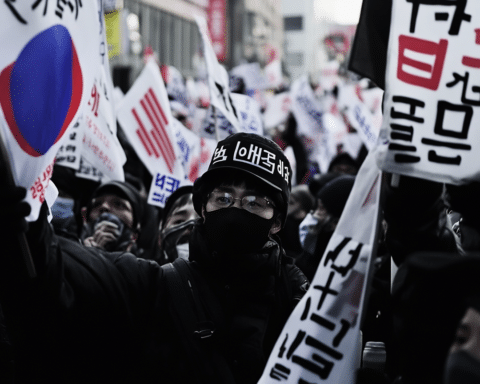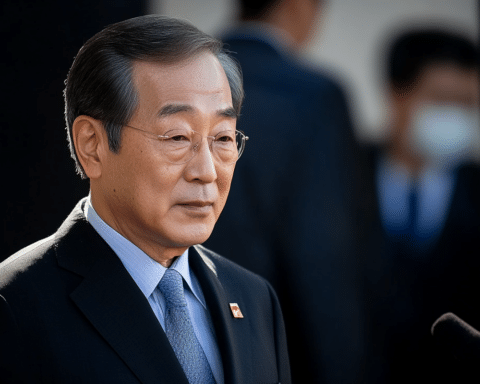South Korea is witnessing a dramatic political showdown as opposition parties unite to impeach President Yoon Suk Yeol. The move follows Yoon’s shocking martial law declaration, which sent armed troops to encircle parliament before lawmakers rallied to lift the decree. This unprecedented crisis has thrown the nation into political turmoil, prompting debates about constitutional violations and democratic backsliding.
The Controversial Martial Law Declaration
President Yoon’s martial law order, announced late Tuesday, aimed to eliminate “anti-state forces” amidst political deadlock. In his address, Yoon accused the opposition of obstructing governance, but the declaration lasted just six hours before the National Assembly voted unanimously to overturn it. Democratic Party lawmakers described the move as “a clear violation of the constitution,” calling it “a grave act of rebellion.” Defense Minister Kim Yong Hyun, who reportedly advised Yoon on the declaration, has also faced calls for impeachment.
Military intervention reminiscent of South Korea’s pre-democracy era unfolded overnight. Troops in full battle gear blocked access to parliament while helicopters hovered above. Yet, lawmakers, including opposition leader Lee Jae-Myung and National Assembly Speaker Woo Won Shik, defied the blockade, scaling walls to vote against the decree.
The Path to Impeachment
Impeaching Yoon requires 200 votes in the 300-member National Assembly and subsequent approval by six of the nine Constitutional Court justices. The opposition, led by the Democratic Party, holds 192 seats but may seek support from Yoon’s ruling conservative People Power Party (PPP), which saw 18 members vote against the martial law. If impeachment succeeds, Prime Minister Han Duck-soo would assume presidential duties while the Constitutional Court deliberates.
The court, currently staffed by six justices, poses another challenge. Natalia Slavney, an analyst at the Stimson Center, noted, “Yoon’s imposition of martial law was a serious backslide of democracy,” underscoring the stakes for South Korea’s democratic institutions.
Public and International Reactions
The brief martial law declaration shocked South Koreans and drew international scrutiny. Like Australian Stephen Rowan, tourists in Seoul expressed concern but noted relief at the swift parliamentary action. “I would have been concerned if martial law had stayed enforced,” Rowan remarked while visiting Gyeongbokgung Palace.
Meanwhile, on Wednesday, Seoul streets returned to business, reflecting resilience amid political chaos. Speaker Woo commended the military’s restraint, stating, “Our citizens have surely observed the events of today and saw the maturity of our military.”
The Bigger Picture
President Yoon’s actions have reignited discussions about executive power and democratic safeguards in South Korea. Critics argue that the martial law decree suspended parliamentary activities and exceeded constitutional limits. “The constitution does not permit the functions of parliament to be restricted,” legal experts emphasized.
The opposition’s impeachment efforts symbolize a broader battle for democratic principles. As political tensions escalate, South Korea faces pivotal decisions that could redefine its governance and international standing.
South Korea now stands at a crossroads, grappling with the implications of a historic political crisis. The impeachment process will test the nation’s democratic framework and constitutional balance. As Natalia Slavney aptly warned, Yoon’s actions highlight “a worrying trend of abuse” that demands vigilance. South Koreans—and the world—watch closely as the story unfolds.





